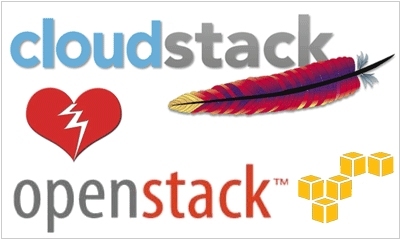OpenStack launches. CloudStack departs. Amazon adapts SAP. Azure rebrands
May 14, 2012 | Author: Michael Stromann

Here is the news digest from the leading cloud platforms. First of all, the open-source platform OpenStack (aka Linux for the clouds) which had been developed for two years by the alliance of IT giants (Rackspace, NASA, Citrix, Intel, AMD, Cisco, Dell, HP, IBM ...) - finally comes to production. Since May 1, it was adapted by RackSpace for its service Rackspace Cloud Files and last week HP launched the public beta of its HP Cloud platform, based on OpenStack. However, a week before the launch the trouble (common for open-source projects) occurred with OpenStack. Citrix, which has been one of the first participants in OpenStack, suddenly decided to grant its own cloud platform - CloudStack - to Apache Software Foundation. Thus, CloudStack not flowed into OpenStack but became a rival project. Citrix explained this decision by the slow OpenStack development and unwillingness of other parties to integrate with Amazon Web Services APIs.
As for Amazon, it's secured from such conflicts, and that's why is busy with more useful occupations - i.e. adaption of the world's largest ERP system SAP All-in-One to Amazon's cloud. Nothing can be more cool than SAP All-in-One in the Cloud, so the appearance of the first customer, using this cloud-based SAP will mean the great win to all cloud industry.
By the way a year ago SAP was going to port its ERP system not only to AWS, but also to the cloud platform of its main partner - Microsoft (Windows Azure). As now it turned out, that AWS - was the first. If in the near future SAP for Windows Azure won't appear, it will be a disaster for Microsoft's cloud business.
But maybe Microsoft has more important things to do. For example, rebranding. Recently the company announced that it will ditch the Windows Live brand. And then it came to Windows Azure. It's already known that a number of services will be renamed as follows: SQL Azure -> SQL Database, Azure Compute -> Cloud Services, Azure Storage -> Storage. It's still unknown whether the Azure brand will remain in the platform title. Why rename? Microsoft says, to erase the boundaries between the cloud and local IT infrastructure.
See also: Top 10 Public Cloud Platforms


